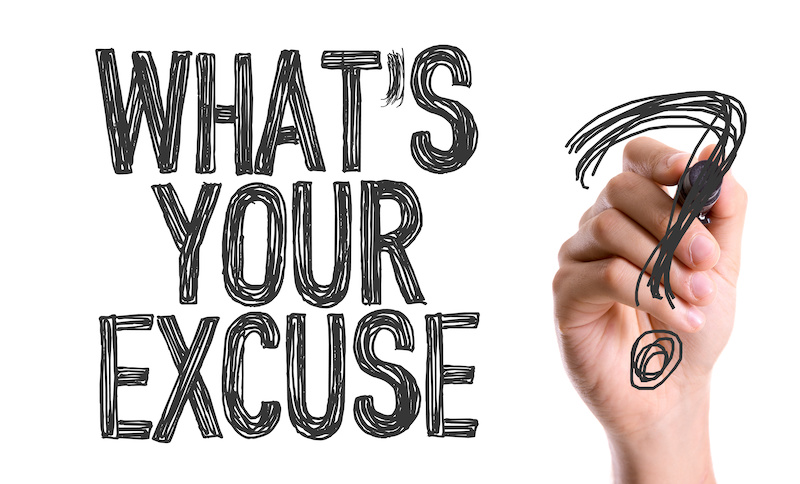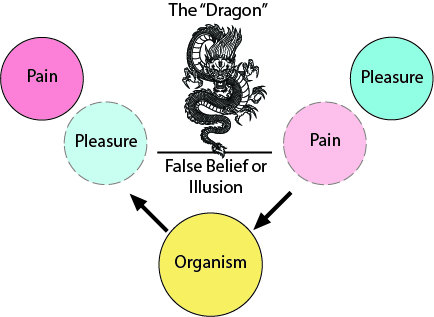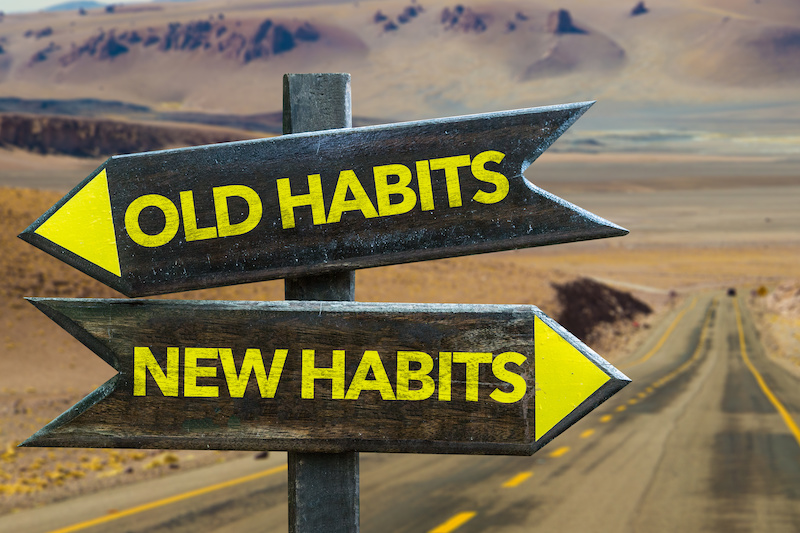 I’m sure you’ve heard the saying, “Practice what you preach.” Well, I’ve modified this saying a little. I like to “Teach what I practice.” I’ve adopted this saying for two reasons. First, I prefer teaching to preaching because I don’t like the “holier than thou” attitude preaching assumes. Second, and more importantly, I think that we can’t help anyone achieve something we haven’t worked on ourselves.
I’m sure you’ve heard the saying, “Practice what you preach.” Well, I’ve modified this saying a little. I like to “Teach what I practice.” I’ve adopted this saying for two reasons. First, I prefer teaching to preaching because I don’t like the “holier than thou” attitude preaching assumes. Second, and more importantly, I think that we can’t help anyone achieve something we haven’t worked on ourselves.
Because of this, in the past, I didn't stress the importance of physical activity enough in my writings about health. Like all of you, I know exercise is important for my health, but I haven’t been all that consistent about getting the exercise I need. In fact, when it comes to exercise, I’ve been like the junk food junkie who knows he or she should be eating healthier, but doesn’t.
In the fall of 2006, Gold’s Gym opened a brand-new facility practically across the street from my office. I thought, “No more excuses!” and signed up for a membership. I went about three or four times, then stopped and didn’t go again for almost 14 months, even though every month the gym was charging my debit card for the $22.91 membership fee. Each time I’d reconcile my checking account, I’d see that charge and think, “I really need to make use of that money I’m spending and use those gym facilities,” but it was always, “Next week.”
Every day, on the way to work and every day going home I’d drive past the gym, so it wasn’t like it was out of my way. “I’ve got to do this,” I’d think. But I didn’t. I was too busy, or too tired or just didn’t feel like it. Those were my excuses; what are yours?
I’m sharing this because I know that understanding what it takes to be healthy isn’t really all that hard. We need to eat nutritious food, avoid toxic chemicals, get adequate sleep, manage stress by finding time for rest and relaxation and, of course, get regular physical activity. The problem is, that none of this works if you don’t actually do it.
 I’m sure that just about everyone who eats “junk food” knows inside that it isn’t good for them, but it’s easier to drive into a fast food joint and pick up a soda, fries and hamburger than to prepare a healthy sack lunch. Years ago, I met a nutritionist while living in Spokane, Washington, who invited my wife and me over for a wonderful dinner of healthy food. She was telling us about her colleagues in the nutrition department who were doing research showing the negative effects of poor nutrition on the body, who would take a break from their research for coffee and donuts.
I’m sure that just about everyone who eats “junk food” knows inside that it isn’t good for them, but it’s easier to drive into a fast food joint and pick up a soda, fries and hamburger than to prepare a healthy sack lunch. Years ago, I met a nutritionist while living in Spokane, Washington, who invited my wife and me over for a wonderful dinner of healthy food. She was telling us about her colleagues in the nutrition department who were doing research showing the negative effects of poor nutrition on the body, who would take a break from their research for coffee and donuts.
It’s easy to look at something like that with a judgmental attitude, but I will venture to say that all of us have at least one area of our lives where intellectually we know what we’re doing isn’t good for us, but we do it anyway. We all have our “excuses” for not taking better care of ourselves. As I said, I’ve done the same thing with exercise for years.
What is the Secret to Getting Past our Excuses?
The answer lies in the seldom-discussed realm of emotions or feelings. Thought doesn’t move into action unless it is motivated by feelings.
To explain this a different way, we need to understand that the brain rationalizes everything. This means that through the process of thought, we seek to find a sense of meaning in our lives. We create a rationale to explain to ourselves why things are the way they are. We also create a mental justification for the way we behave. We can call this mental explanation for our life our “story.”
Because it helps us explain why our life is the way it is, we not only identify with our story, we become very attached to it. In fact, we become attached to it to the point that we actually believe it is true.
When we hear someone else’s “story,” we can often see the “holes” in their reasoning. We can see how they are rationalizing what they do and it is easy to spout trite platitudes about their problems. It’s easy to say, “you should eat better” or “you need to exercise more,” but while it’s easy enough to say, it doesn’t really help anyone to actually change their behavior. Most often people just become defensive and tell their story in the form of their excuses.
To change, you have to discover the emotional “pay off” for why you behave the way you do. We are all motivated, not by thoughts, but by the desire to feel good. The operative word here is feel. It doesn’t matter how much our logical brain knows that something is supposed to be good for us, if it doesn’t actually feel good to us we won’t do it.
So, the actual cause of our dysfunctional behavior is a misperception—some trauma or experience that has caused us to perceive something that is good for us as “bad” or something that is bad for us as “good.” A passage from the Old Testament prophet and poet Isaiah sums this situation up nicely.
“Woe unto them that call evil good and good evil; that put darkness for light, and light for darkness; that put bitter for sweet and sweet for bitter.” (Isaiah 5:20)
 The “woe” Isaiah is talking about is actually the sorrow and trouble we experience when we perceive things that are good for us as bad, and things that are bad for us, as good. I call these misperceptions, dragons. Dragons are the illusions that have been created in our mind through the story we are telling ourselves. These illusions keep us doing things that cause us to feel bad because we think they are supposed to make us feel good. These same illusions prevent us from doing things that would make us feel good because we believe they would make us feel bad. In short, dragons are “lies” we carry around in our mind.
The “woe” Isaiah is talking about is actually the sorrow and trouble we experience when we perceive things that are good for us as bad, and things that are bad for us, as good. I call these misperceptions, dragons. Dragons are the illusions that have been created in our mind through the story we are telling ourselves. These illusions keep us doing things that cause us to feel bad because we think they are supposed to make us feel good. These same illusions prevent us from doing things that would make us feel good because we believe they would make us feel bad. In short, dragons are “lies” we carry around in our mind.
As I’ve already suggested it is easy to see someone else’s “dragons,” but if you try reasoning with someone about what you are seeing, you will probably wind up getting into an argument. People defend their dragons because they are attached to the story they have created to explain their life and behavior. The bottom line is, dragons can’t be fixed by offering advice, reasoning with someone or being logical. In fact, it was “reason” that created the dragon in the first place.
I’m sure you’ve all had the experience of having someone “resist” your very well-intentioned “good” advice. It makes you wonder why they can’t see what you’re so clearly seeing. Well, I guarantee that there are other people wondering the same thing about you (and me).
Our Dragons Resist Logic
I learned about how much people can resist logic and reason many years ago, I worked as a camp counselor for two summers at YMCA Camp Rogers in the Uinta mountains of Utah. During my first week as a camp counselor I had a cabin full of very disturbed 8- and 9-year-old kids. Several counselors who had been at camp for a couple of years told me it was the worst group of kids they had ever seen. They told me they were amazed I didn’t quit after the week was over. I’ll spare you all the details of that week, but I’ll just say that either I love kids a lot or I’m a glutton for punishment. You can decide which.
My second week I got lucky. I only had one highly disturbed child, an 8-year-old know-it-all. You couldn’t teach this child anything. He knew it all. I took the personal challenge on myself to see if I could get him to be open to feedback. I gave up after the following incident.
We had all gone camping for one night by a lake. We had rowboats the kids could use on the lake and I was drawn to the lakeshore by a loud disagreement in the boat about 50 yards offshore. There were, if I remember correctly, five kids in the boat, with two of them manning the oars. One of them was my little know-it-all. The boat was going in circles.
 The other four kids were telling the know-it-all that he was making the boat go in circles. He refused to give up the oar, claiming he knew how to row a boat. It was the other kid who was doing it wrong. Clearly, however, it was him.
The other four kids were telling the know-it-all that he was making the boat go in circles. He refused to give up the oar, claiming he knew how to row a boat. It was the other kid who was doing it wrong. Clearly, however, it was him.
Yelling from the shore, I finally persuaded him to give up his oar and the other kids got the boat under control and rowed over to me to drop him off. They did not want him on the boat.
I told him that he was not rowing correctly, but I’d be happy to teach him the right way to do it. He replied that he already knew how to row and didn’t need my help. I basically said, “suit yourself,” and went back to whatever I was doing.
Sometime later I heard a commotion coming again coming from the lake. This time, my little know-it-all was about 10 yards offshore, by himself, and the boat was going in circles. He said to me, “There is something wrong with this boat.”
“There’s nothing wrong with the boat,” I replied, “You just need to let me teach you how to row properly.” He refused to listen, claiming it was the boats problem not his.
Since I couldn’t get him to the shore, I swam out to the boat and brought it to shore. I got in with him and several other kids joined us. I took the oars and made a beeline for the center of the lake as fast as I could go. After traveling in a fairly straight line for several hundred yards, I stopped and said, “You see, there is nothing wrong with the boat. You just have to row it properly.”
He replied, “There was something wrong with the boat when I was in it!”
Obviously, this child’s story, wouldn’t allow for any possibility that he could be wrong. So, I gave up on trying to change him after that. The truth is that most of us will behave in the way our dragons dictate until we’re in enough pain that we will realize that what we’ve been doing isn’t working.
Difficult moments in our lives such as relationship issues, financial woes or serious health problems are really “wake-up” calls that give us the opportunity to see through the illusions created by our dragons. When it hurts enough, we may be open enough to see that what we’ve been calling sweet is actually very bitter. Then, and only then, will most people open up to the possibility of changing their story.
Discovering My “Story”
Which brings me back to the subject of exercise. Eventually, I had an experience that triggered a “wake-up” call in me and I decided I needed to take a serious look at the exercise issue and the excess weight associated with it. I knew that somewhere I had some dragons inside of me that were making it less painful for me to avoid exercising than it was to get out and start doing it.
So, I did what I’ve done before (and what I teach others to do in my emotional healing work). I got out of my head and into my heart. I started to notice how I felt about exercise. You see, the only way to stop making excuses and start making changes is to get in touch with what is inside of you, emotionally.
You will not be able to intellectually “overpower” a dragon. You have to see through it by recognizing it for what it is, an illusion you’ve created that you genuinely believe it is protecting you from pain or bringing you happiness. You have to “wake up” and see that what you thought was good and sweet is actually evil and bitter and what you thought was bad and bitter would actually be beneficial for you and sweet.
Here’s what came up when I tuned into my feelings about working out at the gym. When I was young, I had two problems that made me really struggle with sports. For one thing, I suffered from chronic sinus problems that caused me to be a mouth breather. This made me become easily winded when I was young. When I ran in gym, class I was always last because I would start coughing up mucus and feel like I was choking and couldn’t breathe.
 The second problem was that I was also awkward and uncoordinated. I had problems with eye-hand coordinatione, so I wasn’t very good at catching or throwing a ball. It wasn’t for a lack of effort on my part, either. I actually loved playing basketball and would go to the basketball court at the nearby playground and practice for hours. In contrast, my brother, who is two-and-a-half years younger than me, hardly ever practiced and we were about equally skilled.
The second problem was that I was also awkward and uncoordinated. I had problems with eye-hand coordinatione, so I wasn’t very good at catching or throwing a ball. It wasn’t for a lack of effort on my part, either. I actually loved playing basketball and would go to the basketball court at the nearby playground and practice for hours. In contrast, my brother, who is two-and-a-half years younger than me, hardly ever practiced and we were about equally skilled.
My cousin, David Barker, really worked hard trying to help me learn to throw and catch a football, hit a softball with a bat, and master other skills associated with sports. But, in spite of his very patient efforts (bless his soul), I struggled with these tasks.
Many years later when I encountered Brain Gym, I discovered I was dyslexic I was able to correct this problem through a repatterning exercise. As a result, I’ve been able to help some young boys get past the problem I suffered from and actually start to master the same sports skills with which I used to struggle. I have two videos about overcoming learning disabilities on my YouTube channel.
Unfortunately, however, there was no one who knew how to fix this problem for me when I was young, so I worked hard to become mediocre at sports. As a result, when teams were being selected, I was almost always picked last.
I might mention that, even though I was not good at sports, I was not physically inactive in my youth. I liked hiking and swimming and worked as a house painter with my Dad in the summers. Nevertheless, even though I was physically active, I hated gym classes, especially in Junior High School. Day after day, I dreaded having to face the humiliating experience of failing miserably at something of such value to most young men my age.
When I tuned into my feelings as an adult, I realized that going to the gym was associated with humiliation, failure, defeat, and frustration. No wonder I avoided it!
Waking Up from the Dream Created by Our Story
 In his book, Awakening: Conversations with the Masters, Anthony De Mello, a Catholic priest, tells a series of stories about the teachings of a fictitious spiritual teacher he simply refers to as “The Master.” One of my favorites is this:
In his book, Awakening: Conversations with the Masters, Anthony De Mello, a Catholic priest, tells a series of stories about the teachings of a fictitious spiritual teacher he simply refers to as “The Master.” One of my favorites is this:
“How long will it take me to solve my problem?”
“Not one minute more than it takes you to understand it,” said the Master.
You see, I couldn’t motivate myself to go the gym because my subconscious mind was protecting me from the pain and humiliation I’d experienced in my teens. (Or, so it thought.) Until I actually saw the problem for what it was, I couldn’t solve it.
That’s how dragons are dispelled. Once you see them for the lies they are, they automatically dissolve. The fact is, that all my excuses were completely bogus. They weren’t the real reason I wasn’t exercising.
You’ll find the same thing is happening when you have issues surrounding food. Earlier, I had noticed that I often ate too much. Even though the quality of the food I was eating was good, I’d often eat until I was uncomfortably full.
Using the same technique discussed above, I tuned into the emotions I had about eating. I discovered that I felt guilty if I didn’t clean my plate. I tuned into the guilt trip my mother instilled in me about “wasting” food. It was so strong that I psychologically couldn’t stand the thought of not eating everything on my plate. To avoid this guilt, I would ignore the fact that I was full, and eat bigger meals than I needed to.
My awareness of this immediately helped me start changing it. I would actually deliberately leave food on my plate and throw it away just to prove I didn’t have to eat it. As a result, I now tend to take smaller portions because I realized that I feel better when I eat less food, but eat more regularly. My habit before was to eat big meals but eat on an irregular schedule.
As Anthony De Mello’s story of the fictitious spiritual master suggests, becoming aware of what the problem really is, is also the first step to solving it. The reason why all the trite platitudes, suggestions, criticisms, preachings and so forth don’t work is that they are focused on providing a solution, rather than becoming aware of the problem. The truth is that you find the solution to the problem readily once you actually understand the problem. You discover the problem through tuning into your feelings about something so you can “see” clearly what is going on inside of you.
If you find yourself resisting doing something that you know is “good” for you or compulsively doing something you know is “bad” for you, think about what you are doing and notice the feelings that arise in you surrounding this activity. In another book, Awareness: The Path to Love, Anthony De Mello explains that all the beliefs, rationalizations, attachments, ideas and habits we have formed are like prison walls. You can’t escape the prison until you realize you are in it. Most of us become adapted to prison life and a few of us struggle for better conditions inside the prison. Few actually have the courage to confront their “story” and their “rationalizations” and actually see the prison walls they create. In Awareness: The Path to Love, De Mello suggests:
“Contemplate the walls, spend hours just observing your ideas, your habits, your attachments and your fears without any judgment and condemnation. Look at them and they will crumble.”
Whatever is holding you back from eating healthy, exercising or doing anything else that is good for you is an illusion. When you look closely at it, the illusion will always crumble and you’ll see the truth behind it. You’ll see for yourself what is bitter and what is sweet, and we’re instinctively hard-wired to want that which is sweet.
Habit Force
 Realization is the first step to change, but it takes some effort to form new habits. Most of us are governed by habit force. It’s related to the law of physics that says, “An object at rest tends to stay at rest, an object in motion tends to stay in motion.” The greatest expenditure of energy when you’re driving is when you’re accelerating. Once the car is moving it takes less effort to keep it going than it did to get it going.
Realization is the first step to change, but it takes some effort to form new habits. Most of us are governed by habit force. It’s related to the law of physics that says, “An object at rest tends to stay at rest, an object in motion tends to stay in motion.” The greatest expenditure of energy when you’re driving is when you’re accelerating. Once the car is moving it takes less effort to keep it going than it did to get it going.
The same is true for forming new habits. It takes a lot of effort to start to form a new habit. Once you’ve expended the initial effort, it takes far less effort to maintain the new habit. It tends to start running on autopilot. I discuss this idea extensively in two free webinars I did as the introduction to my Holistic Approach to Disease series. You can watch these for free on this website: https://stevenhorne.com/educational-program/The-Holistic-Approach-to-Disease
I bring up the issue of habit force simply because it’s been tough to for me to develop better exercise habits even though I don’t have the hang-ups about it I used to have. When I could no longer afford to pay for the personal trainer, I found it harder to motivate myself to go to the gym because I still didn’t enjoy it.
Then, I changed my approach. I decided that instead of intellectually trying to push myself to do it, I’d tune in to my body and really get into the feel of doing it. So, instead of worrying about how many reps I was doing, I’d just concentrate on feeling my body as I was doing the exercise and doing what felt right to me.
That caused a big shift in me. I actually started to enjoy working out.
Then I started dating someone who had been a personal trainer. She decided that I needed to set these goals in what I was doing and started pressuring me to “work out harder.” I told her, look, I’m just starting to enjoy exercise for the first time in my life. Just let me do this my way.
She couldn’t understand this. Her pushing was triggering all my “dragons” from the past about exercise. It made me worry about the results I was getting instead of just getting into the enjoyment of it. Literally, it took the enjoyment out of what I was doing.
I mention this because I think all too often people get intellectual ideas about what the “should” be doing for their health rather than tuning into and feeling their body. This is true for exercise and it’s also true for diet, sleep, recreation and other aspects of a balanced life. You can’t do all of this intellectually. It has to be a partnership between you and your body. You have to tune into what your body needs and work towards the ultimate goal, which is feeling good.
I’m very lucky right now to have a wife who enjoys physical activity, but she isn’t pushing me to achieve some exercise goal. We walk together, we go swimming together and otherwise do things that we both enjoy. Having her with me makes the exercise an absolutely pleasurable experience and I’m more motivated to exercise now than I have ever been in my life.
My point is, that when you’re trying to help someone else you need to tune into their needs and help make the health changes a positive, not a stressful experience. Being healthy shouldn’t be stressful. Stressing about diet or exercise or anything else isn’t helping you be healthy.
Tips for Getting Past Your Own Excuses
 Here are a few suggestions on how to get past your excuses and start making real changes in your life.
Here are a few suggestions on how to get past your excuses and start making real changes in your life.
First, when you have a bad health habit that you want to change, don’t “fight” it or “beat yourself up about it.” Start by just becoming aware of it. Notice the feelings you have about it and just acknowledge and listen to these feelings. By turning your awareness (not your judgment and self-condemnation) onto the problem, you’ll start to see it for what it is. Then, solving it will become much easier.
Second, forget about willpower. Willpower is a weak and ineffective way to create change in yourself. For most people, accountability is a much more powerful motivator than will. Find a way to recruit some help. The reason why weight loss groups work is because they make a person accountable to other people. And, we are more likely to stay aware and follow-through when we are accountable. This is why I hired a personal trainer in the past and it’s why I love exercising with my wife. Anything that gets you accountable to other people will be a much more effective motivator than willpower.
Third, be gentle with yourself. Emotionally “beating yourself up” about something means you’ve created a negative emotional energy surrounding what you desire, which will automatically make you avoid making the changes you want. If you dwell on your mistakes, or what you don’t want, you’ll continue to struggle with change. Instead, think about what you do want and celebrate and reward yourself for every success you have in moving towards your new goal. Even if these steps seem small, celebrate them and reward yourself. That’s what I could never get my ex-girlfriend, who had been a personal trainer, to understand. She was feeding my inner inadequacy and discouraging me, rather than encouraging me, by trying to set goals for me that I didn’t feel comfortable with.
You see, if I looked at other people in the gym who were better at this stuff than I was, I would feel embarrassed by the lack of muscle strength in my arms. I would look around and see other people who were working out with far heavier weights than me and think, “Look how out of shape I am.” This hampered my success. When I focused on the feelings in my own body, each time I am able to increase the weight on a particular exercise, I could mentally “pat myself on the back” and congratulate myself on how much stronger I’m becoming.
You can do a similar thing with improving your diet. Instead of beating yourself up when you have a binge, congratulate yourself every time you push the plate away and think, “that’s enough.” Reward yourself every time you eat a healthy meal with a mental “pat on the back” by thinking, “That was great!” You’ll find it much easier to change this way.
If you know you need to exercise, eat better, take your supplements, get more rest or improve the way you care for yourself in any way, it’s time to stop falling victim to your “excuses.” If you start becoming aware of your feelings about these issues (so you can actually identify what’s holding you back), make yourself accountable for change and reward yourself for every small success. You’ll soon be experiencing more energy, happier moods, and better overall health.
To learn more about a genuinely holistic approach to health, be sure to watch my Holistic Approach to Disease webinars: https://stevenhorne.com/educational-program/The-Holistic-Approach-to-Disease
Steven's Articles
-

-
Eucommia Bark
A superior tonic that promotes kidney, structural,…
January
-

-
Goldenthread, Phellodendron, and Yellow Root
Three herbal remedies containing the infection-fighting…
-

-
Teasel
A traditional herb for healing bones and joints…
-

-
Barberry and Healthy Personal Boundaries
A thorny shrub for fighting infections and supporting…
December
-

-
The Evidence for Berberine
A yellow alkaloid found in traditional infection-fighting…
-

-
The Sensible Use of Caffeinated Herbs
Kola nuts, guarana, and yerba mate and other herbs…
-

-
The Health Benefits and Problems with Coffee
This popular caffeinated beverage can be beneficial…
October
-

-
Understanding Caffeine & Cellular Adaptation
Preserving the power of caffeine's buzz and the…
September
-

-
Horseradish
A pungent spice for aiding protein metabolism…
-

-
Banaba or Crepe Myrtle
A beautiful tree from Southeast Asia whose leaves…
August
-

-
Monkeyflowers
Flower essences to help see ourselves more clearly…
-

-
Mariposa Lilies
Strengthening the bond between mother and child…
-

-
The Noble Bay Leaf
A common kitchen herb for aiding digestion and…
-

-
Epimedium: Horny Goat Weed
A circulatory stimulant and kidney yang tonic…
July
-

-
The Medicinal and Nutritional Benefits of Apricots
A nutritious fruit and valuable medicinal seed for coughs

